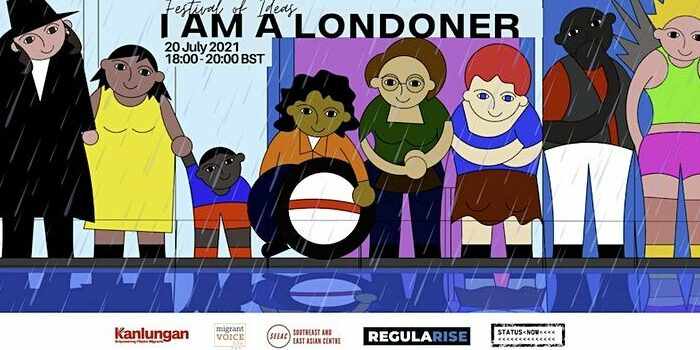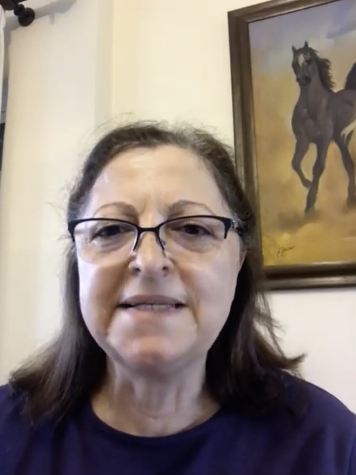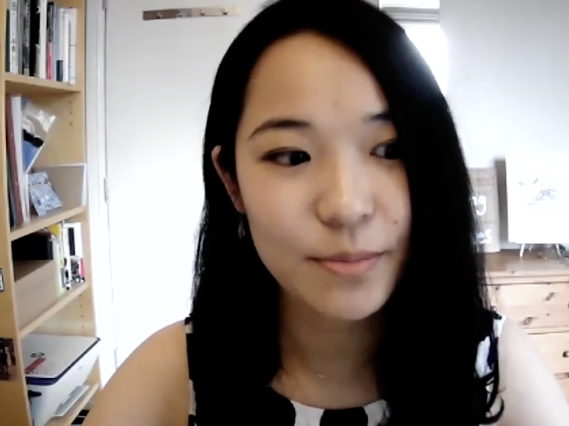Being and Belonging among Undocumented Londoners
In this blog, Erene Kaptani and Marie Gillespie report on how undocumented Londoners express their sense of belonging at an online event, “I’m a Londoner,” that took place in July 2021 as part of the London Assembly’s Festival of Ideas. The blog represents the testimonies of undocumented Londoners in their own words, offering insights into their often invisible lives.
Introduction

This Festival of Ideas event I’m a Londoner invited undocumented Londoners to reflect on their experiences and share their hope and dreams through art, music, and poetry. The Festival of Ideas is part of the work of the London Assembly which holds the London Mayor, Sadiq Khan and his office, to account. It invites participation from Londoners to ensure that the Mayor’s policies, actions and strategies are in the public interest. The event was organised by various migrant support organisations (see below for details). It explored individual and collective visions and plans for strengthening communities in London.
Erene chaired the discussion. Participants were off-camera for the event to protect and safeguard them. Pseudonyms are also used. First of all, she explains how she approached her role in the event and some of the issues it raised for her and highlights points that struck her. We then offer some excerpts from participant’s testimonies.
I was invited to facilitate the discussion among undocumented migrants – Ana, Manu and Husain (not their real names). The problems and pains encountered in their everyday lives under the UK Government’s “hostile environment” policies was revealed. I began by asking participants why they were willing to talk about things that are traumatic for them. I explained my ambivalence and fear that I may be exacerbating their trauma. In addition, I was concerned at how through this event they might expose themselves and be exposed to online harms. I was concerned about reproducing spectacles of pain commonly associated with representations of marginalised groups.
I was reassured when Manu replied that it was important to be visible to avoid being forced into potentially indefinite invisibility. They all agreed that the arts can play a role in managing visibility and invisbility. I proceeded to ask the group of undocumented people gathered but invisible online about what it means to them to be a Londoner – if they felt like Londoners.
I shared my experiences as an immigrant in London. Manu said he had a bike accident and was happy when people came to help. Husain said he couldn’t have an accident as he cannot be treated in an NHS hospital – he has no right to access the NHS. He also said that he had to move homes perpetually. While London affords the invisibility he needs to survive, being invisible and undocumented means no recourse to public funds or services.
I mentioned a news report on 21 June 2021 about Analiza Guevarra who ended up in a living hell in London after fleeing poverty in the Philippines. She set up the Filippino Domestic Workers Organisation that rescues scores of people living in domestic servitude every year. At the event Ana shared her own experiences as a domestic slave.
She reported that because there is such a lot of attention on migrant domestic slavery, she usually does not respond to all the invitations she receives to speak on the issue as she does not wish to reproduce spectacles of suffering and abuse. However, she said she was willing to attend and speak at the I’m a Londoner event to offer support and solidarity to all undocumented people and to promote the work of her organisation.
Ana reported with great sadness that, although she helps many women who are victims of domestic slavery, she is unable to help her own family financially and she missed them so much it was painful. She is unable to work. She is still awaiting a decision by the Home Office. It was a joyous moment when Ana’s son was able to connect online for this event (as you will read below). I had invited him to join the panel after witnessing his mother’s overwhelming love and yearning for him.
Undocumented people have to take work as and when they can. Husain, one of the other invited panellists, could not attend the event as he found a cash-in-hand job for couple of pounds and had to take that meagre sum to survive. I had to leave the event as I had to pick up my daughter from a neighbour after a long day’s work. I can only wish the same for her.
I was reassured when Manu replied that it was important to be visible to avoid being forced into potentially indefinite invisibility. They all agreed that the arts can play a role in managing visibility and invisbility. I proceeded to ask the group of undocumented people gathered but invisible online about what it means to them to be a Londoner – if they felt like Londoners.
– Erene Kaptani


The following are excerpts from participants’ statements in their own words – we have anonymised testimonies:
“It’s a system of apartheid for undocumented people in this country“
“We’re ready, we’re participating and contributing already, and we can do so much more if our rights are granted. Most of all, I and many others want to be able to live with dignity and be respected as human beings so that we can live our lives. It’s a system of apartheid for undocumented people in this country. You’re kept apart from society. We are taking care of their children. We are taking care of their elderly. There really needs to be a big fight to ensure that we get our rights. And yes, I’m hoping everyone here is able to join in this fight and we can grow it because it requires a movement. Things have been getting worse and worse for my entire time in the UK and they plan to be getting worse and worse with this new Immigration Bill.”
House and home: every inch of your life is controlled
“When I rent I’m always thinking about what will happen next. If you’re living somewhere and the landlord suddenly says you need to get out of there, it’s not like I can easily find somewhere else to live, and that’s really stressful. I was made homeless because I lost my regular status. I squatted for years and years. That’s how I managed to survive. Also, it’s where I learned how to be an activist. We struggled a lot and it was kind of tragic, yeah. I mean it’s like every inch of your life from housing to relationships is controlled.”
Appreciation
“I would like to thank all the organisations helping undocumented working people like me … It’s very touching. We express our own feelings and culture. I’m here for almost two decades. Would you believe? Not attending the burial of my parents, the wedding of my son and everything going on in the family back home.”
“We need to belong“
“We would like to contribute to the organisations but we are always working. Yesterday, I would really like to have taken part in the campaign for the regularisation of undocumented migrants. Because of the situation we are into right now, we cannot. We cannot do what we have to do. Even looking for a place to live, it took me a long while. So for me, this forum is very important. Especially to people like us, we need to belong. Well, if we’re regularised then I could say I’m a Londoner from the heart because then I could integrate, I could communicate well.”
Stay positive
“I approached several lawyers to help me regularise and a lot of them took only my money which went down the drain. You know it’s so hard to trust anyone – except your organisations that help us nowadays. We are totally exploited in a lot of things. So we are very thankful that we are so blessed that you took time, all the organisations helping each and every one of us. You help us to be recognised as a Londoner. So thank you very much. May you continue helping us fight for the cause. Each and everyone don’t give up. Stay positive. There’s always light at the end.”
“As long as she stands, there is a future“
[Mother] My son is coming online from Philippines. He knows what I’m doing and he says he’s very proud of me. It’s 2:00 AM in the morning in the Philippines. Here he is.
[Son] I’m so proud of my mother for making life better in spite of all the things that have been happening. She’s a superhero for me coz without her, without her … geez, she’s my inspiration. She’s why I’m still pursuing my studies. I wanna graduate and give back all the things she has done for me and our family so she can rest and enjoy the life that she deserves, yeah, I’m so proud of her and I love her. As long as she stands, there is the very future. So not only for her but for all.
My name is Nazek Ramadan and I’m the director of Migrant Voice
We are one of the member organisations. We set up over 11 years ago to make sure that we migrants are speaking for ourselves, advocating for our rights. So it was very important for us to be part of a campaign like this. More than 130 organisations are signatories to the network. They include a large number of migrant groups and organisations as well as local authorities, the trade unions, researchers, academics.
There are lots of people who strongly believe that we shouldn’t be treating people who don’t have documents differently. In March 2020 we called on the British and Irish governments to give status to all the undocumented, destitute and migrants in the legal process, regardless of their immigration status, so everyone can access healthcare, housing, food and other support, and this is so important in the middle of a pandemic. We can’t accept that lots of undocumented people are unable to protect themselves because they cannot access healthcare, so they can’t even get vaccinated. They can’t access help. If they work in the informal economy, they come to work anyway. Some live in overcrowded accommodation. They cannot self isolate and social distance and all that.
So we called on the government to regularise all migrants so they can protect themselves and protect their families. We know that in the UK alone there are over a million undocumented people. We need to support them, people like the people just heard earlier on. Your neighbours, that care worker, that nurse. They are just people like all of us and in the middle of a pandemic, now is the time to regularise all migrants. If not now, then when?
This is a national network, with regional branches, and today this is one of the activities of the London network branch. We run a lot of campaigns and activities and many of us do partnership working. One example is called the Resilience Project where we came together and we organised lots of safe spaces for undocumented migrants to come, meet, and have a voice, build networks and connections, build community. We heard earlier from Ana, who said she feels safer, she feels she belongs. So we can take these voices and those experiences to policymakers and tell them, this is wrong, they need to give everyone the right to access healthcare and live in dignity and support themselves.
If you’d like to engage, support us please. It’s time we all stood up for the rights of all migrants, including those who don’t have documents. We must all call for everyone to have status.
Organise, agitate
We had a demonstration outside Number 10 Downing Street yesterday. There was a debate in Parliament on the regularisation of undocumented migrants (19 July 2021). This debate was a result of a petition signed by over 100,000 people. So that’s a big feat. I don’t think that’s ever happened before. The petition was set up by grassroots activists and the reason it got to 100,000 signatures, is through a lot of work that was done by undocumented people, within underground networks. Tirelessly every day they went to the temples, churches everywhere to ensure that this got to over 100,000 signatures. The demonstration was great. It was very well attended. In the debate itself (led by Tom Hunt MP) many people were supportive of the regularisation scheme, however the government said they are not wanting to do a blanket regularisation or so called blanket amnesty (though we don’t really use that word). But then they did say that there’s room for discussion, so it’s important for people to constantly be pushing on this, like writing to your MP to say, hey, I believe everyone living here should have the same rights. Engaging with your MP, and in your local community, connecting with different groups and supporting people is very important, but also come to the demonstrations where they happen by all means. But it’s the work in between that’s really important. If you’re in a trade union, please speak with your trade union. Speak with your workplace, your colleagues, your friends to support this because it’s going to be a long struggle. It’s important to have as many people on board as possible.

I’m a Londoner was jointly organised by:
- Status Now 4 All London
- Kanlungan Filipino Consortium
- Migrants Voice
- Regularise
- South East and East Asian Centre
The event was hosted by Zing Tsjeng – author, journalist and VICE UK executive editor
Dr Erene Kaptani – anthropologist, participatory theatre artist and dramatherapist working at The Open University.
If you would like further information about the event please contact:
Professor Marie Gillespie assembled and edited the report for cov19chronicles.com 30 August 2021
Contact: [email protected]
Comments
Submit a Comment